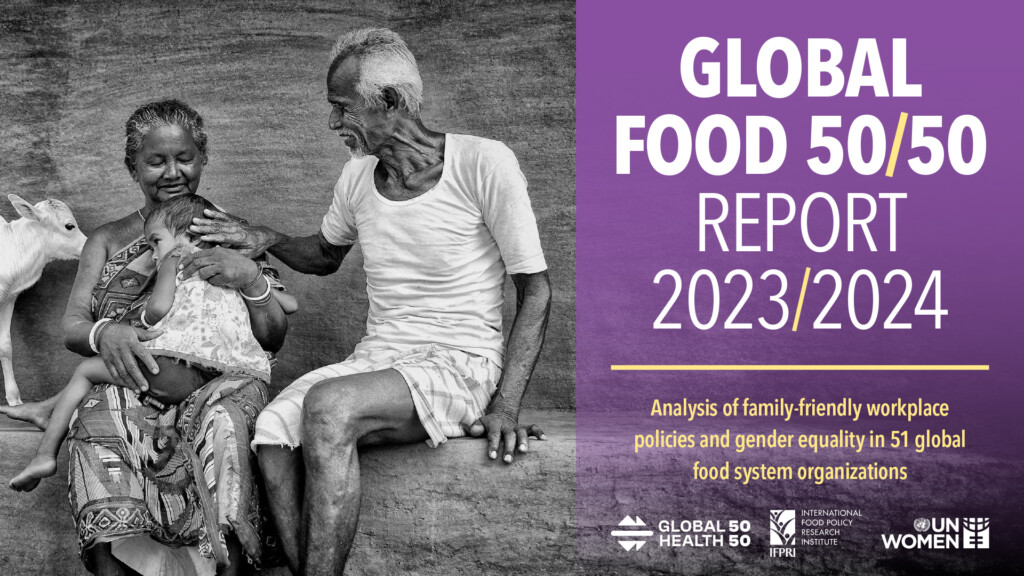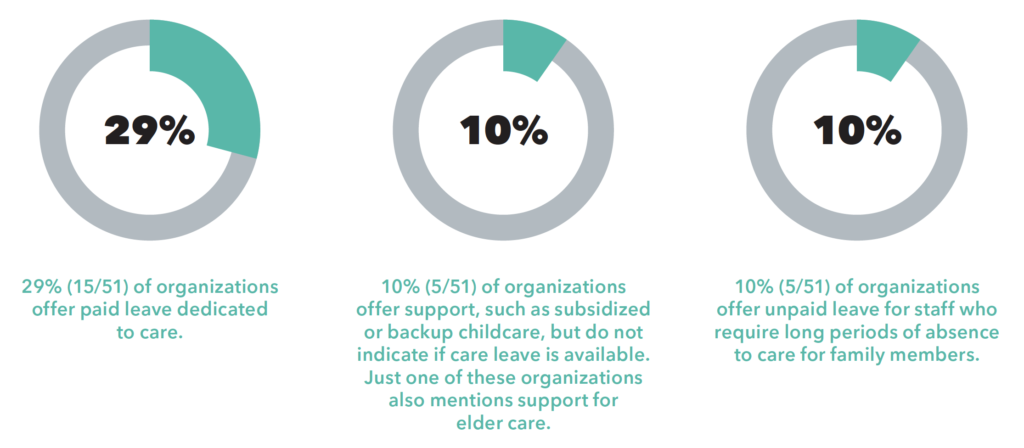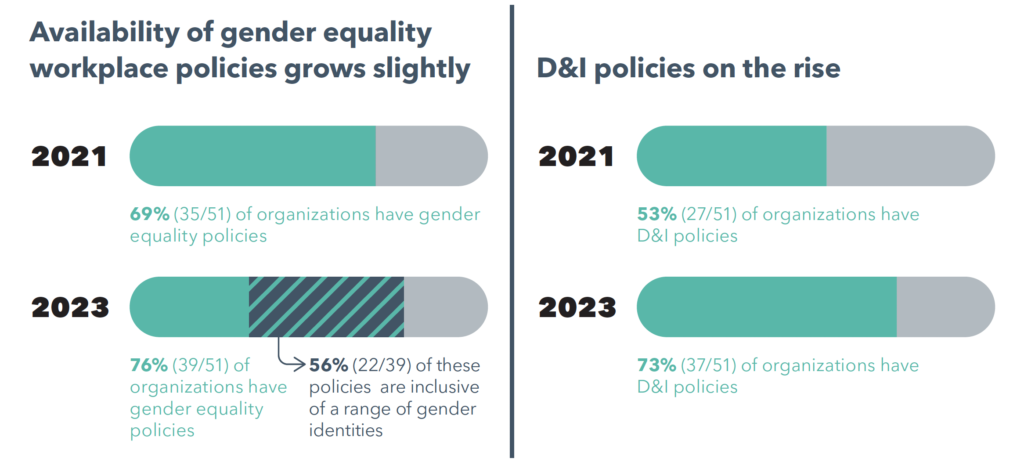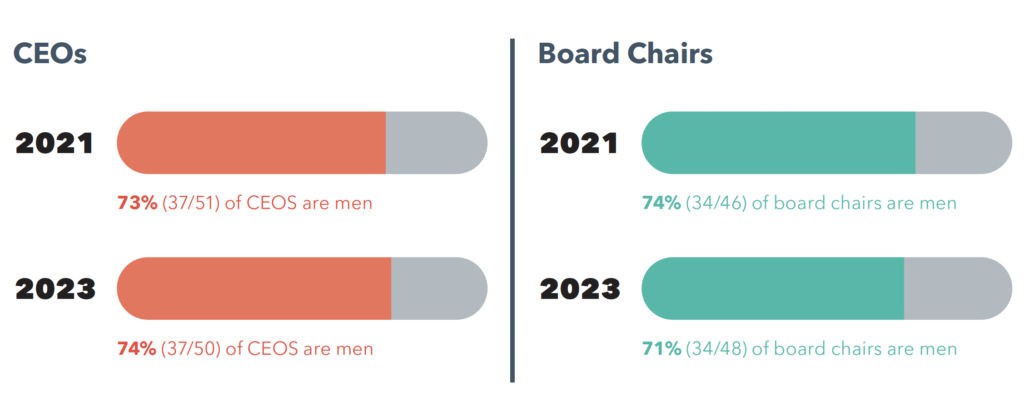
Global Health 50/50, IFPRI, and UN Women presents its third annual Global Food 50/50 Report. Each year, we explore the obstacles that keep some people from enjoying the same career opportunities as others, particularly those that keep women from participating, advancing, and leading in global food systems.
Care responsibilities, particularly those that are unpaid, fall disproportionately on women. This has implications for women’s career trajectories, including by contributing to ongoing gender pay gaps and perpetuating gender biases and discrimination in the workplace. Addressing the inequalities of time spent on care is a cornerstone of gender equality within global food system organizations and for the people they aim to serve. For the first time, the 2023/2024 Report expands its focus to address the extent to which workplace policies recognize and support employees’ care responsibilities.
Along with an in-depth look at family-friendly workplace policies, the 2023/2024 Report presents our annual analysis of gender-related policies and practices within 51 organizations, including their public commitments to gender equality, workplace policies on gender equality, diversity and inclusion, representation in leadership, and policy commitments to collect and report data disaggregated by sex.
Workplaces have responded to employees’ family and care responsibilities in several ways, including offering flexible work arrangements, providing leave for care, and sharing resources on care and peer networks. We find however that paid care leave and support remain the exception, especially for caring responsibilities beyond infant and childcare.

Legal frameworks exist to protect workers from discrimination, yet these are not enough to counteract the individual biases and structural discrimination that disadvantage people. Ensuring equality of opportunity requires clear policies with specific and actionable measures.
GF5050 assessed which organizations had publicly available policies that committed to advancing gender equality and/or diversity and inclusion (D&I) in the workplace—alongside and beyond gender equality—and which had specific measures in place to guide and monitor progress.
We find that three-quarters of organizations have publicly available workplace policies with specific measures to advance gender equality. We also find a rise in the availability of workplace D&I policies from 53 percent of organizations in 2021 to 73 percent in 2023.

Who holds positions of authority? This question provides a strong measure of the progress that organizations are making in fostering equity in career advancement, decision-making, and power.
We found no change in the number of women CEOs and board chairs since 2021. We also find that decision-making bodies remain likely to have more men than women, rather than be at parity or have more women than men.


Despite some advances among some global food systems organizations, the sector has a long way to go to achieve gender equality in the boardroom, in the workplace and in who benefits from their work. The data in this report can equip leaders at all levels—from communities to workforces to boards—to take action, drive change, measure progress, and hold those in power accountable to their commitments to advance gender equality and transform food systems. A fairer, more gender-equal system will be best placed to end hunger, poverty, and inequality around the world.
Suggested citation: Global Health 50/50, the International Food Policy Research Institute, UN Women, ‘The Global Food 50/50 Report 2023/2024’, Washington D.C.: 2024. https://doi.org/10.56649/DDXD8983